10 Brilliant women who have empowered many others!
7 minuteRead

There are a special group of persevering citizens who rise above challenges, to redefine themselves and the people around them. They are the change-makers who are not willing to let others define them, their positions in society, and what they can or cannot do.
And this spirit is best defined in the work of powerful women who have redefined and changed the lives of a lot of other women, despite many challenges.
1. Pabiben Rabari:
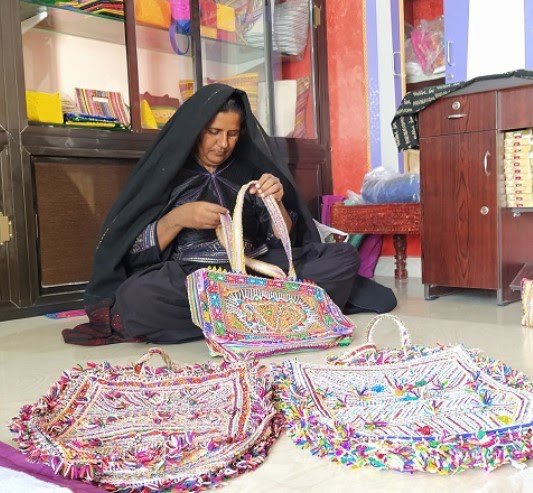
The 36-year-old village resident is a household name who has not only transformed her destiny from the shackles of a conservative Rabari or pastoral community, that confines women to household work but has also changed other women's lives. Pabiben Rabari's embroidery work, locally known as 'Hari Jari,' which she learned while growing up, has taken her out of this village to cities such as Delhi and Mumbai. She made a women's sling bag now a popular product named 'Pabi Bag'.Her bag was featured in Hindi and Hollywood movies. Pabi married at the age of 17 and was brought to the jungles of Chhattisgarh by her husband Lakshman, where cows and buffaloes were reared. "My family, including my brother-in-law, are now stuck in the jungle. Men roam around rearing cattle, while women take care of food and tend to children. I couldn't live that life, and I came to Bhadroi village in Anjar taluk of Kutch district.
My husband joined a grocery store in Anjar Market as a salesperson..." she remembers.
In 2016, she won Jankidevi Bajaj Puraskar for rural entrepreneurship. Last year, she recorded a turnover of more than Rs 25 lakh. The number may not be big, but over the last five years, she has employed 160 families in her community.
2. Anuradha Kapoor:
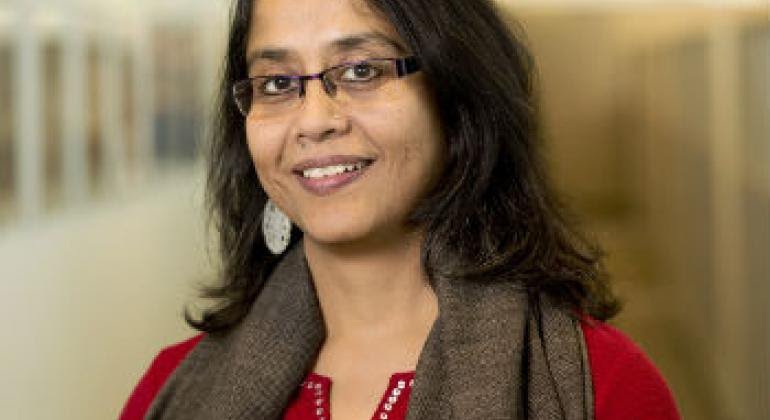
Anuradha Kapoor is the founder and director of Swayam, a feminist organisation dedicated to ending gender inequality and violence against women was established in May 1995 in Kolkata, India. Swayam offers direct support services to survivors of violence, works with neighborhood groups to create violence-free communities, facilitates public education initiatives and regularly engages in advocacy, research, publishing and documentation work on violence against women and other related topics.
After the lockdown, women victims of domestic abuse had been trapped at home with their abusers, with no way of protection from violence. Physical distancing also meant that they could not reach out to neighbours or relatives for assistance and that their only comfort was talking to others on the phone. Immediately after the lockdown, Swayam set up six helplines (including one dedicated helpline to access qualified mental health counselors) and then added three more helplines. They had to totally change their plan and do everything on the phone because they couldn't get out that time.
Her organization works with families, students, the police, lawyers and policymakers. "The mitigation of domestic abuse must start early, which is why we are talking to boys and girls in the family. We also conduct training with police and lawyers, because everybody has the same sensibilities and patriarchy is a huge part of it. But I have a lot of confidence in our younger generation to bring about positive change," Kapoor adds.
3. Phoolbasan Bai Yadav:
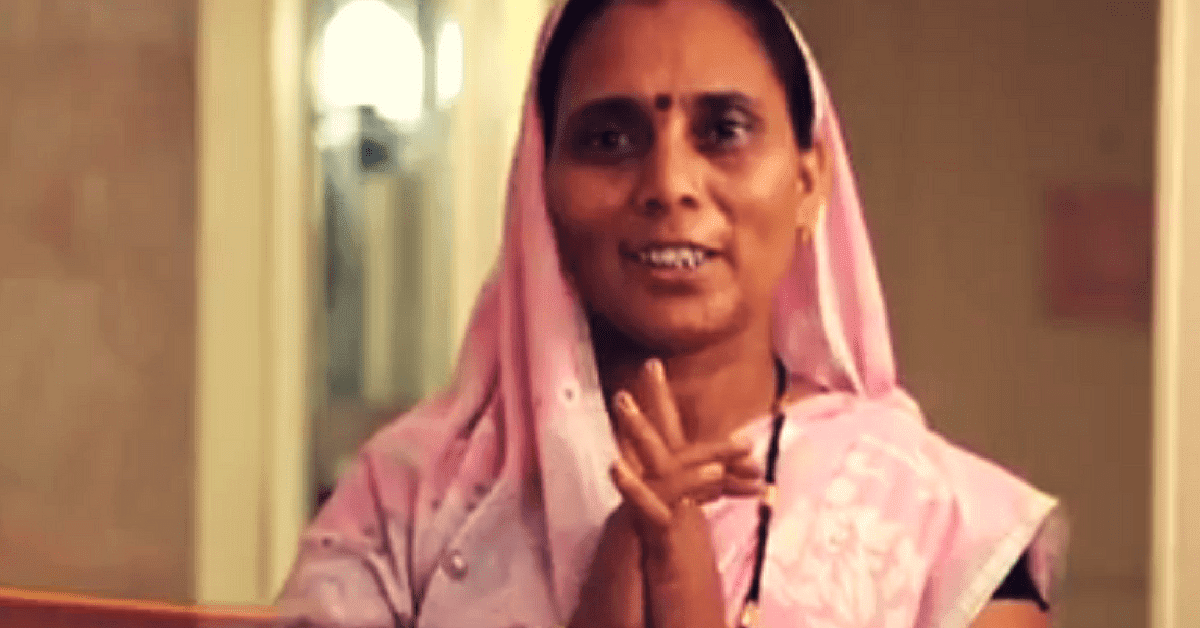
Phoolbasan Bai Yadav is a well-known name in rural Chhattisgarh, given the remarkable work in the area of women's empowerment and children's rights.
At the tender age of ten, she was married off to a cattle herder. The illiteracy and lack of job prospects meant that the couple was forced to live in abject poverty. But rather than disheartening her, the desperate circumstances fuelled her determination to do more.
Determined to create a better life for herself and her family, Phoolbasan began to participate in the activities of self-help groups in her locality. These self-help groups are viewed by the government as a way of empowering women. In the village of Phoolbasan, the group raised money to help women engage in the cattle rearing scheme. In no time at all, Phoolbasan learned firsthand the advantages of engaging in such a group. Then, she decided to form her own parties, including 'Pragya Mahila Samooh,' 'Kiraya Bhandar' and 'Bazar Theka.'
Later, she consolidated her various groups and social activities under the umbrella of Maan Bamleshwari Janhit Kare Samiti, an NGO named after Goddess Durga, which began with 11 women. The NGO and the many groups that worked under its banner have played a crucial role in empowering women and ensuring their financial independence, as well as improving the living conditions of the villagers. Phoolbasan's efforts have won awards from various sources. She was given the National Award for Best Performance, sponsored by NABARD, the 'Maa Bamleshwari Award' by the District Administration for three years in a row, and the Award for Women Empowerment by the Union Bank of India, Mumbai.
4. Sunitha Krishnan:
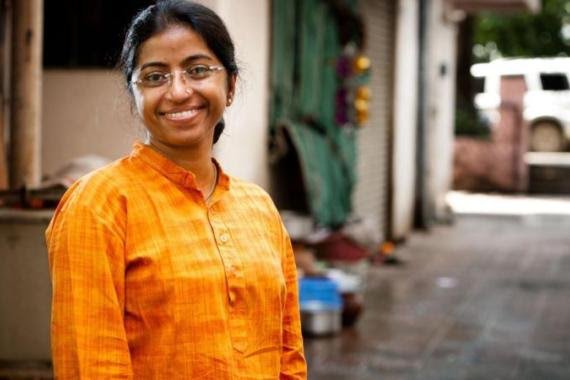
For those of us who are familiar with the gender equality movement in India, Sunitha Krishnan is a well-known figure. As one of the strongest opponents of human trafficking, Dr. Krishnan is today one of the most ardent voices advocating for empowerment for women. She is best known for co-founding Prajwala, a human trafficking NGO that has rescued more than 17,800 lives who were forced into prostitution. Prajwala stands on five pillars: prevention, rescue, recovery, reintegration and advocacy. The organization extends moral, economical, legal and social assistance to victims of trafficking and ensures that the perpetrators are brought to justice. In the early years of Prajwala, Sunitha Krishnan had to sell her jewelry and much of her household utensils to make the ends meet. In reality, even today, the organisation relies on awards for finances. But monetary constraints have not seemed to be limitations to the aspirations of Prajwala.
To date, Prajwala has rescued, rehabilitated, or served more than 17,000 survivors of sex trafficking, making it the world's largest anti-trafficking shelter. Through Prajwala, Dr. Krishnan has made it possible for the government and citizens' organisations to jointly manage a range of preventive and rehabilitative programs for women and children survivors of human trafficking. She has been honored internationally for her humanitarian work and has received multiple honors and accolades. The Government of India honored her with the fourth highest civil award, Padma Shri, in 2016.
5. Ruma Devi:
Born near Rajasthan's Barmer district, 31-year-old handicraft craftsman Ruma Devi defied all odds when she created a wave of social change with her simple handmade embroidery—an entrepreneurial movement that has now touched more than 22,000 grassroots women and led her to the "Nari Shakti Puraskar', India's highest civil honour for women. Inspired by her grandma's handicraft skills—using wool for garments and traditional duvets for home use—Ruma Devi began to make hand-embroidered bags. "I could embroider with needle and thread, but to stitch it all together for the final product, I needed a sewing machine," she said in an interview with IANSlife.
This is when Ruma Devi gathered the women in her neighbourhood, gathered Rs 100 each, and began work. An uphill challenge, it needed her—and the women associated with her—to battle against the high temperatures and scarce water supply characteristic of Rajasthan, which made life hard."We traveled long distances to mobilise women. Men of the household had apprehensions about letting them work, but we still didn't give up", said Ruma Devi, who educated and provided employment to more than 22,000 women from 75 villages in the state. She is the president of Gramin Vikas Evam Chetna Sansthan, an NGO based in Barmer.
6. Dr. Megha Phansalkar:
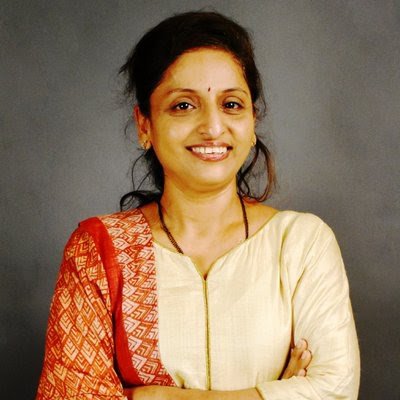
Based in Mumbai, Tisser Rural Handicrafts Pvt Ltd and Tisser Artisan Trust was launched by Dr. Megha Phansalkar in 2015 as a social initiative to boost the lives of rural Indian artisans. When working as a consultant for the National Rural Livelihood Mission (NRLM) in the World Bank, she realised that there are thousands of Indian craftsmen whose livelihood depends solely on handicrafts and crafts, the knowledge has passed on as a legacy to their families for decades. With evolving times, these art forms and crafts are becoming outdated due to a lack of innovation. "Seeing the need of the hour, we have adopted a unique model by supporting artisans with product design and diversification through IT-enabled innovations," she says. They do this by expanding the product portfolio of craftsmen by cataloging and marketing their products on different platforms.
7. Sister Sudha varghese:
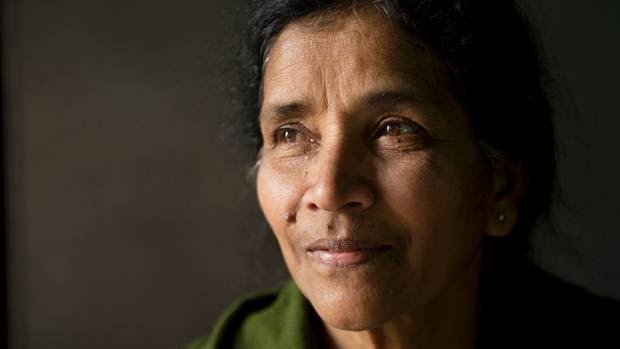
Touched by poverty, untouchability and violence against Musahar, the Mahadalit community of Bihar, Padma Shri Sudha Varghese has chosen to devote her life to their upliftment. Sudha, who hails from Kottayam, Kerala, migrated to Bihar in her late teens, and has been living and working with the downtrodden in Bihar for three decades now. Her attempts to reach out to the Musahars, the Mahadalit community, have paid off bringing about a huge change in their lives. Known for their vocation as a rat catcher, the Musahar community lived on the outskirts of the village and suffered caste and gender atrocities from the upper castes. Nari Gunjan, her NGO, is active in five districts of Bihar and operates with 850 self-help organisations. It is supported by the Mahadalit Vikas Commission of Bihar and has developed a variety of effective programs. These include 'Anand Shiksha Kendras,' which are like anganwadis, and 'Kishori Shiksha Kendras,' which cater to drop-outs from government schools and also reach out to women interested in education as part of Nari Gunjan's Aksharanjali Adult Education Programme.
Sudha has also launched women's livelihood initiatives for the community. "Malnutrition has been the main health issue in the Musahar community. We also adopted poultry and goat farming as an alternative livelihood program. Today, 750 families have kitchen gardens to cultivate their own vegetables and sell surplus produce. Women's organisations are also active in the production of 'chane ka sattu' (a common nutritious powder made from chickpeas)," she says.
8. Maya Vishwakarma:
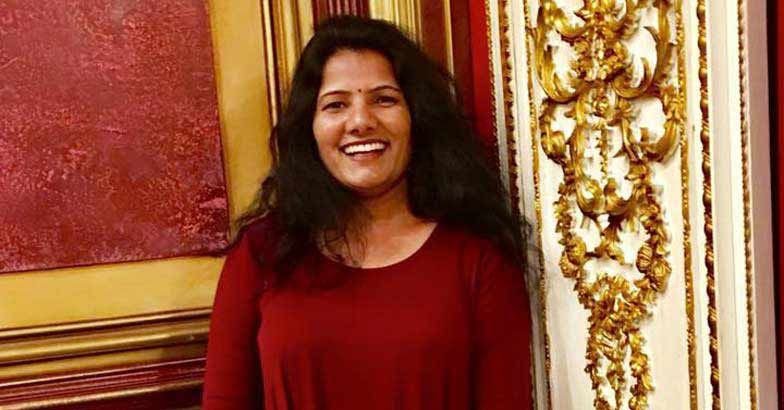
Maya Vishwakarma is a perfect example of how women and girls in India are influenced by the taboo and stigma around menstruation. Hailing from a village in the Narsinghpur district of Madhya Pradesh, she had not heard of sanitary napkins until she was 26.
"During my first period, I was asked to wear cloth by a relative. This caused a number of infections. Talking about menstrual health is still a taboo subject in our culture. My early life experiences have motivated me to work in this area." says Maya
Now the 36-year-old is eager to make sure that other women do not have to suffer from situations like her. That's why, now popularly known as the 'Padwoman' of India,' she quit being a cancer researcher in California and returned to India. After coming back to India, Maya began the Sukarma Foundation in her hometown. She visits women across India to increase awareness of the importance of using sanitary napkins and break the misconceptions around periods. At the same time, the foundation manufacturers and sells sanitary napkins at cheap and affordable prices. In the two years since it began, the lives of more than 2,000 women have already been improved.
9. Chetna gala sinha:
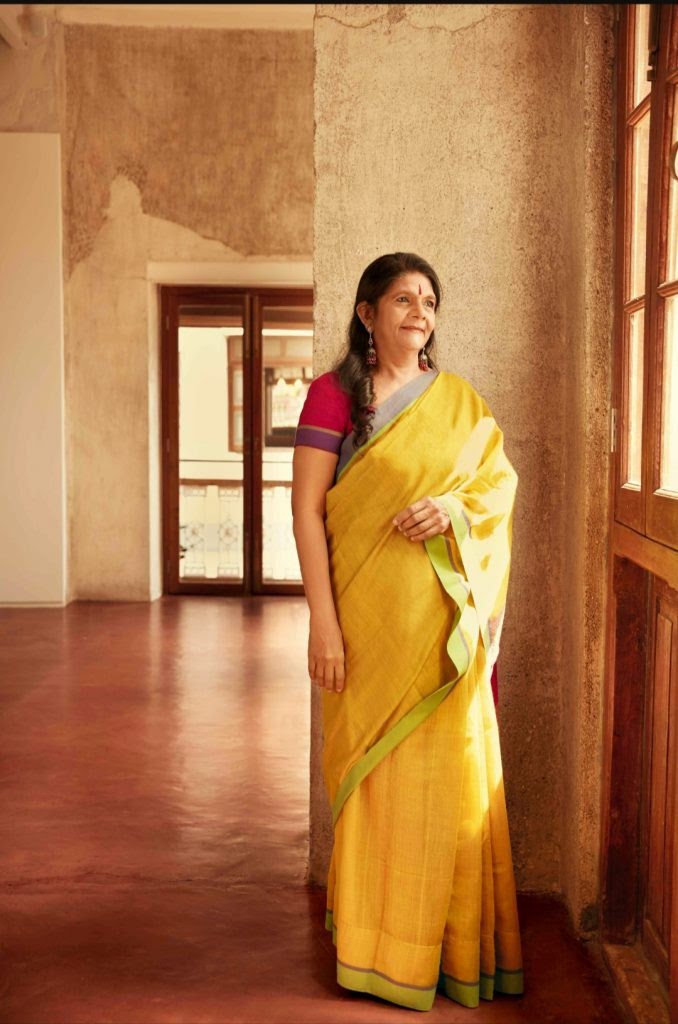
Born in Mumbai and graduated from the University of Mumbai, Chetna Gala Sinha moved to Mhaswad, Maharashtra, India. Aware of the extreme inequality faced by women in rural India, Chetna Gala Sinha established the first women's bank, Mann Deshi Mahila Bank, in 1997.
Rural women see illiteracy as a threat to their financial freedom, and the Chetna Mann Desi Foundation is dedicated to improving the lives of rural Indian women, improving their careers, evaluating their jobs and becoming genuinely financially independent. Chetna says she found that rural women's social empowerment was primarily related to their economic opportunities. This bank is her effort to bridge the gap. With the help of the village women, the bank began with a share capital of Rs 600,000. From micro-credit programs ranging from five-year loans to one-day loans or loans that are as low as 5,000, to giving women the ability to pay on a daily basis, the bank has developed its own popular model to engage these women. The bank also offers a regular lending service, the EMI repayment sum being as low as Rs 15. The bank reports that more than 15,000 transactions of this nature take place on a regular basis. Today, more than half a million rural Indian women have been supported by her bank in the expectation that one day they will become leaders of the country. Today, 90,000 account holders at Mann Desi Bank earn more than Rs 150 crore and the bank constantly creates new financial products to meet the needs of women micro-entrepreneurs.
10. Viji Penkoottu:
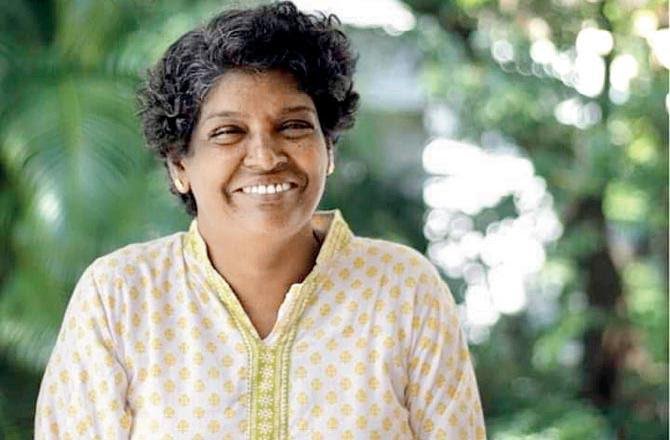
Women working in the shops and malls of Midhayitheru, SM Street, Kozhikode shopping area, Kerala, have been denied basic human rights-the freedom to sit or visit the toilet. This was not an isolated event. Disturbed by the situation, 50-year-old activist Viji Penkoottu thought it was about time everyone raised their voices.``With no toilets in or around the shops and denial to sit, it was as if these women were not even considered human," Viji said. She was selected by the BBC as one of 100 inspirational and influential women from around the world in November 2018. When we confronted the established trade unions, we learned from their response that they were also male bastions. “So we formed Penkoottu, a women's union, to raise our voices to fight for the fundamental rights of saleswomen. We then confronted shop owners demanding toilet facilities for women employees, and their response was quite disrespectful. They told us to drink less water because there'll be less pee. Some of them have recommended that we use a funnel or a hose if woman workers had to urinate during working hours," Viji continued. Due to her incessant efforts, an act to protect the rights has been passed in the state.
Write, Record and Answer! Consume Unlimited Content! All you need to do is sign in and its absolutely free!
Continue with one click!!By signing up, you agree to our Terms and Conditions and Privacy Policy.










